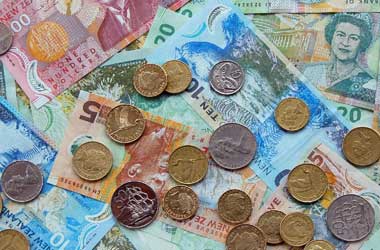 The NZD/USD currency pair rallied to 20-month high of 0.6886 following the Reserve Bank of New Zealand’s decision to maintain official cash rate (OCR) at a historical low of 0.25%.
The NZD/USD currency pair rallied to 20-month high of 0.6886 following the Reserve Bank of New Zealand’s decision to maintain official cash rate (OCR) at a historical low of 0.25%.
In New Zealand, the official interest rate is called as the Official Cash Rate (OCR), which was presented for the first time in March 1999 and is revised eight times per year by the bank.
The OCR affects the cost of borrowing money and indirectly gives leverage to the Reserve Bank a means of controlling the level of economic activity and inflation.
The central bank stated that further stimulus package will be rolled out to achieve the consumer price inflation and employment remit via a Funding for Lending Programme (FLP), starting in December.
The FLP would decrease the cost of borrowing for banks and reduce interest rates. Furthermore, the Large Scale Asset Purchase (LSAP) program was left unchanged at NZ$100 billion by policymakers.
The board acknowledged, against the backdrop of Covid-19 resurgence, that latest headlines on advances in vaccines are good. Before any universal vaccination can be completed, though, there is a considerable and unpredictable wait.
The Reserve Bank of New Zealand (RBNZ) unanimously choose to support its economy with extra monetary stimulus to achieve its consumer price inflation and jobs targets.Next month, the Funding for Lending Program (FLP) will be launched, which will slash the borrowing costs of New Zealand banks and reduce interest rates.
The RBNZ will continue with the purchase of N$100 billion (~$68.9 billion) with the Large Scale Asset Purchase (LSAP) Program and maintain the Official Cash Rate (OCR) at 0.25%. The application of negative OCR in the form of a potential monetary policy tool was not ruled out by the RBNZ.
The statement reads:
“Progress has been made on the Reserve Bank’s operational ability to deploy an FLP and a negative OCR. These instruments can be mutually supportive in bolstering economic activity if necessary.”
In the midst of worries about COVID-19, the RBNZ lowered the OCR by 75 basis points to its present level on 16 March and announced that it will stay at that level for a minimum of 12 months.
RBNZ announced on Wednesday that, since its August Monetary Policy Announcement, both foreign and local economic activity has proven to be more robust than previously thought. The forecast for worldwide economic growth, nevertheless, is contingent on control of Covid-19.
As the economy realigns, RBNZ predicts a continuing rise in jobless rate in the region. It is also expected that domestic inflationary pressure will stay at the lower end of the remit range for a span of few years and inflation projections will remain muted.
It is also accepted that the monetary policy of the RBNZ would have to stay supportive for a considerable period of time in order to attain the consumer price inflation and employment remit and that it must stay ready to offer extra assistance if required. At present, New Zealand is at COVID-19 Alert Level 1, with no prohibitions on domestic meetings.
The major stock index of New Zealand rose on Thursday for the eighth consecutive session, stretching its record-setting streak as expectations for a better-than-anticipated global economic growth continued to boost stocks that were economically sensitive. Linked to a rebounding economy, services and financials drove all nine capital market sectors into positive region.
As coronavirus related travel and border controls have limited tourist takeoffs and landings to historic low levels in since February, international tourist arrivals in New Zealand fell by 243,289 or 96.7% year-on-year to 8,550 in September. Arrivals amounted to 2.17 million for the year ended September, a decrease of 1.73 million from the year ended September 2019.




